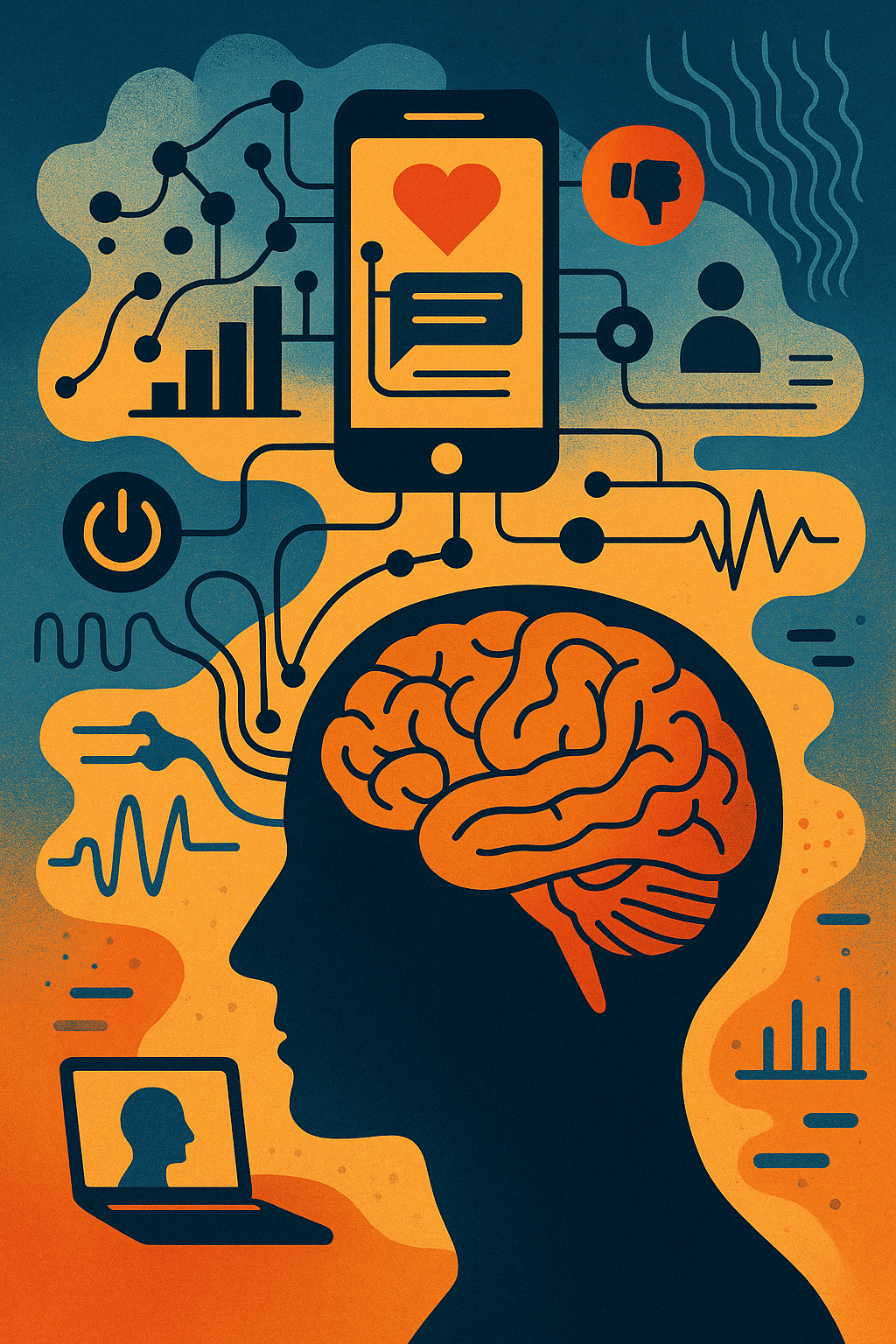🔍 The Attention Economy: A Double-Edged Sword
We live in a world where attention is the most valuable commodity. Every app, notification, and online ad is part of a growing “attention economy” designed to grab and hold your focus—for as long as possible.
But here’s the catch: what’s good for tech companies isn’t always good for your mind. As we learn more about neuroscience and productivity, one thing becomes increasingly clear: the attention economy misunderstands what it actually means to focus.

📱 Why Constant Engagement ≠ True Focus
The attention economy measures success by clicks, scrolls, and screen time. But while those metrics show engagement, they say little about whether you’re actually focused.
Focus is not about constant interaction; it’s about depth. It involves sustained mental energy directed toward a meaningful goal. In contrast, most online platforms promote shallow multitasking—skimming, switching, and reacting.
Even worse, algorithms often reward outrage, novelty, and urgency over clarity, calm, and comprehension. Over time, this rewires our brains to crave stimulation rather than depth.
“What you pay attention to is the person you become,” writes James Clear, author of Atomic Habits.
🧠 The Science of Focus: What Actually Works
True focus is less about what grabs your attention and more about what you choose to return to repeatedly. Research from Stanford University shows that frequent task-switching lowers your cognitive performance, reduces memory retention, and makes it harder to complete complex tasks (Stanford Multitasking Study).
So, while social media platforms may measure your “engagement,” they’re actually training your brain to be less focused in the long run.
Here’s what actually helps build real focus:
- Deep work sessions: Uninterrupted time blocks dedicated to one task
- Mindfulness and meditation: Practices that train attention and emotional regulation
- Physical movement: Regular exercise increases brain-derived neurotrophic factor (BDNF), which supports focus and learning
- Downtime and rest: The brain needs space for consolidation and clarity
⚠️ What the Attention Economy Gets Wrong
Despite knowing the value of deep attention, the attention economy continues to treat all engagement as equal. This misunderstanding leads to a few key problems:
1. It Overvalues Quantity Over Quality
Ten minutes of meaningful thought gets drowned out by hours of passive scrolling. Yet, most platforms reward the latter.
2. It Confuses Distraction With Choice
We often think we’re choosing what to engage with—but really, we’re responding to triggers created to interrupt us. Notifications aren’t choices; they’re demands.
3. It Ignores Cognitive Limits
Humans aren’t built to process constant input. Cognitive overload leads to fatigue, poor decision-making, and emotional burnout.
🔄 Reclaiming Your Focus in a Distracted World
While we can’t entirely escape the attention economy, we can become more conscious participants in it. That means rethinking how we engage with technology, time, and attention itself.
Try These Practical Shifts:
- Turn off non-essential notifications
- Use browser extensions like News Feed Eradicator or StayFocusd
- Schedule “focus hours” with your phone in another room
- Take intentional tech breaks during the week
- Track attention, not just time: Ask yourself where your energy actually goes
💡 Attention Is an Act of Power
In a world designed to distract you, choosing where to place your focus is a radical act. The attention economy wants you to think you’re in control, but unless you set boundaries, your mind becomes a battleground for competing agendas.
As writer and digital wellbeing expert Cal Newport explains, “[The ability to focus without distraction] is like a superpower in our increasingly noisy world” (Deep Work).
🧭 Final Thoughts: Focus Is More Than an Algorithm
The attention economy has given us endless access to information—but it often steals the meaning behind it. By understanding the difference between attention-grabbing and attention-sustaining, we can reclaim our mental clarity and use our focus with intention.
Remember: Focus isn’t just something you have. It’s something you build—daily, consciously, and often quietly.
📚 References
- Stanford Multitasking Study: https://news.stanford.edu
- Cal Newport – Deep Work: https://www.calnewport.com/books/deep-work/
- James Clear – Atomic Habits: https://jamesclear.com






